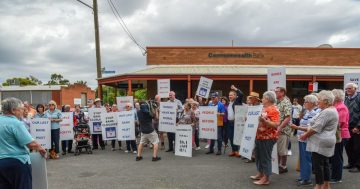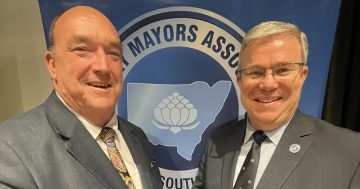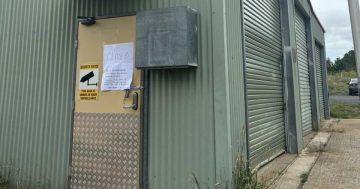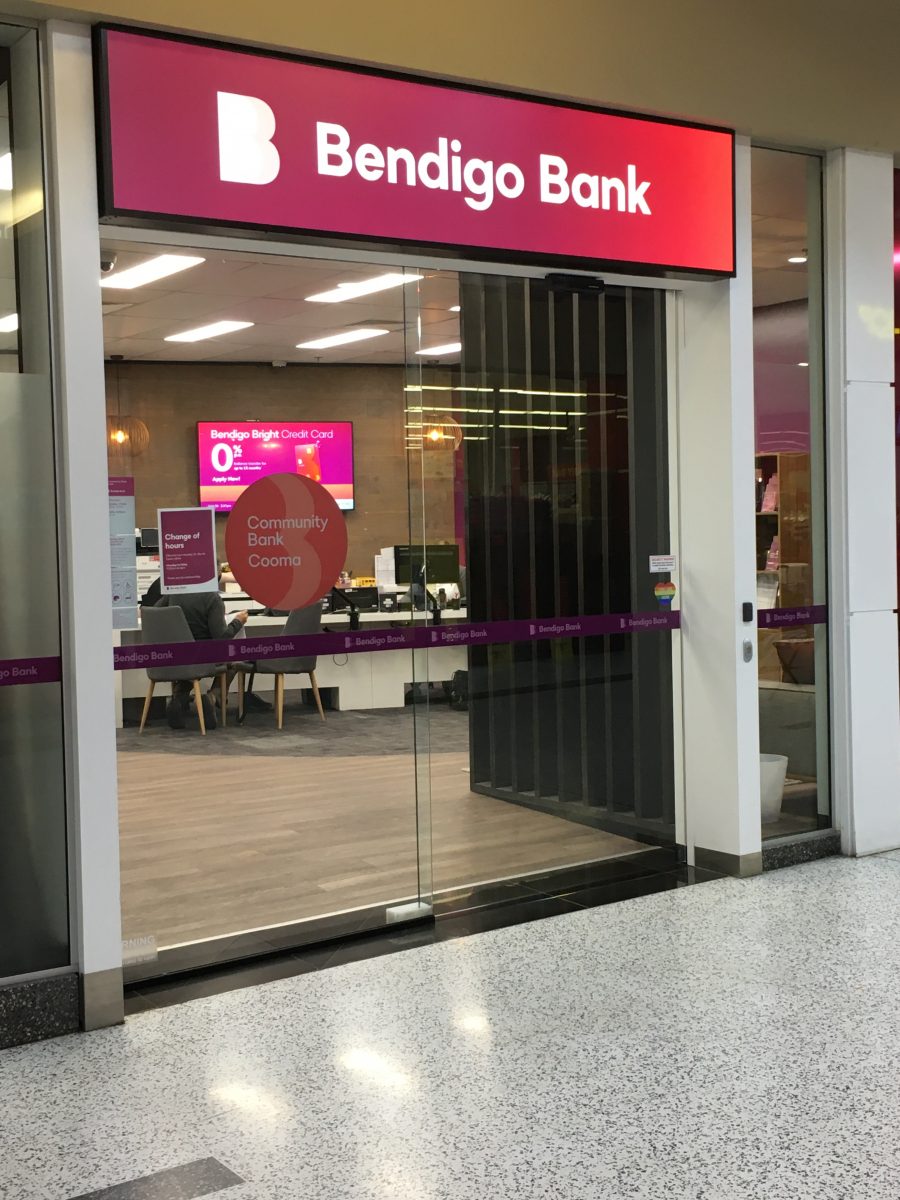
Bendigo Bank’s agency model has made it a mainstay for regional banking but now the bank is scaling back its operations. Photo: Gail Eastaway.
The Country Mayors Association of NSW has slammed the annoucement of cuts to banking services in regional and rural communities, with many Bendigo Bank agencies slated for closure across Southern NSW.
The Riverina is set to cop much of the blow, with five of the state’s 12 closures, the remainder largely in the Southern and Central tablelands. Agency closures are set to begin in mid-October.
Bendigo Bank had bucked the growing trend of banks shuttering regional branches. Its sudden about-face has caught many off guard.
Now the Country Mayors Association – which represents 92 NSW regional councils – is looking for answers.
“I have written to the Bendigo Bank Chairman Mrs Vicki Carter, respectfully asking for an explanation,” chair of the CMA, Temora Mayor Rick Firman said.
“Bendigo Bank presented itself as different to the Big Four … as far as the CMA is concerned, actions speak louder than words and the agency closure decision suggests, on the surface, that their rural and regional commitment was hollow marketing, and that rural communities do not really matter. Any withdrawal of services from our communities is a step backwards.”
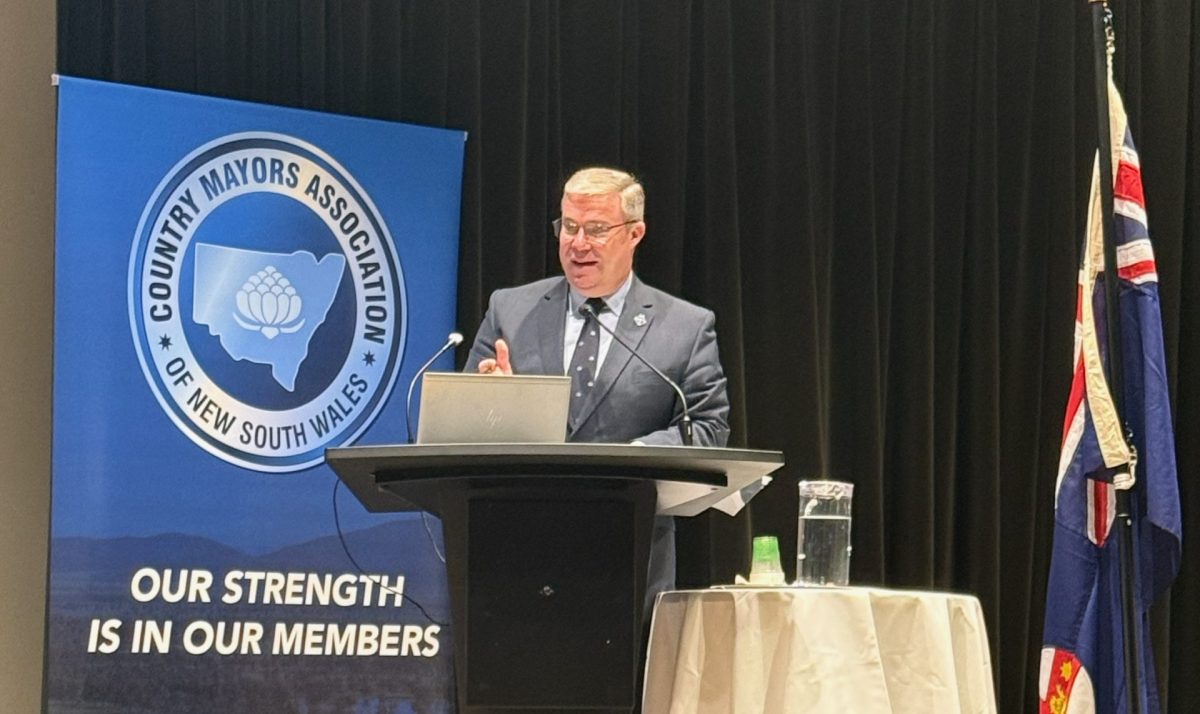
Mayor Rick Firman addresses a gathering at a Country Mayors Association meeting. The CMA has described Bendigo Bank’s commitments to the regional community as empty promises. Photo: Supplied.
Bendigo Bank has stated that decreasing customer use and other factors meant it could no longer support its previous ‘agency model’ that allowed for service in areas with low demand.
Chief customer officer Taso Corolis said they would still preserve what made the bank unique.
“We are proud of our regional heritage and are committed to providing face-to-face banking services for our customers,” he said.
“We understand it may take time for some customers to adjust to these changes and we will support them through this. We are proactively supporting customers affected by the closures and will offer them assistance.”
Most closures will impact Southern NSW, with the Riverina to be hit especially hard, losing agencies in Jerilderie, Darlington Point, Lake Cargelligo, Holbrook, and Mathoura.
Other communities that will be hit include Crookwell in the Upper Lachlan, Cowra in the Central West, and Buronga in the Far West.
The closures aren’t just a concern to those local government areas directly impacted.
Mayor Russell Fitzpatrick from Bega Valley Shire, which won’t be affected, said he knew not every branch was viable, but banks and the government needed to understand how important access was to regional Australians.
“They make massive profits all the banks. I know they’re responsible to their shareholders for those profits. But at the same time, they’re also responsible to a community element and fabric of Australian society as well, so they should be made to actually keep some of those branches,” he said.
“You see the effect it has on the town and the community. If you haven’t got the bank then you haven’t got the community connection … those things in rural towns are still very important.”
Between 2017 and 2023, more than a third of regional bank branches closed.
Amid concerns about bank branch closures the Federal Government inked a deal earlier this year to impose a 2.5-year moratorium on branch closures by the Commonwealth, NAB, Westpac, and ANZ banks.
But Mr Firman said Bendigo’s closures showed the government’s approach was too narrow.
“Early this year, the Australian Government secured an agreed moratorium on bank branch closures with the Big Four banks for two and a half years. This was a positive step for Federal Treasurer Mr Chalmers but the Bendigo Bank announcement illustrates how the focus was too narrow.”
The CMA has also expressed concerns over job cuts in the state public service impacting Transport NSW, and the Department of Primary Industries and Regional Development.
Mr Firman said he was concerned promises of regional commitments had become nothing but hollow catchphrases.
“This should be a time for investment in and support for regional and rural communities, particularly after harsh droughts, fires, floods and COVID-19 over the past decade,” he said.
“Please always consider how much more deeply cuts are felt in the bush, and ensure these cuts are not thrust on our rural and regional communities.”








